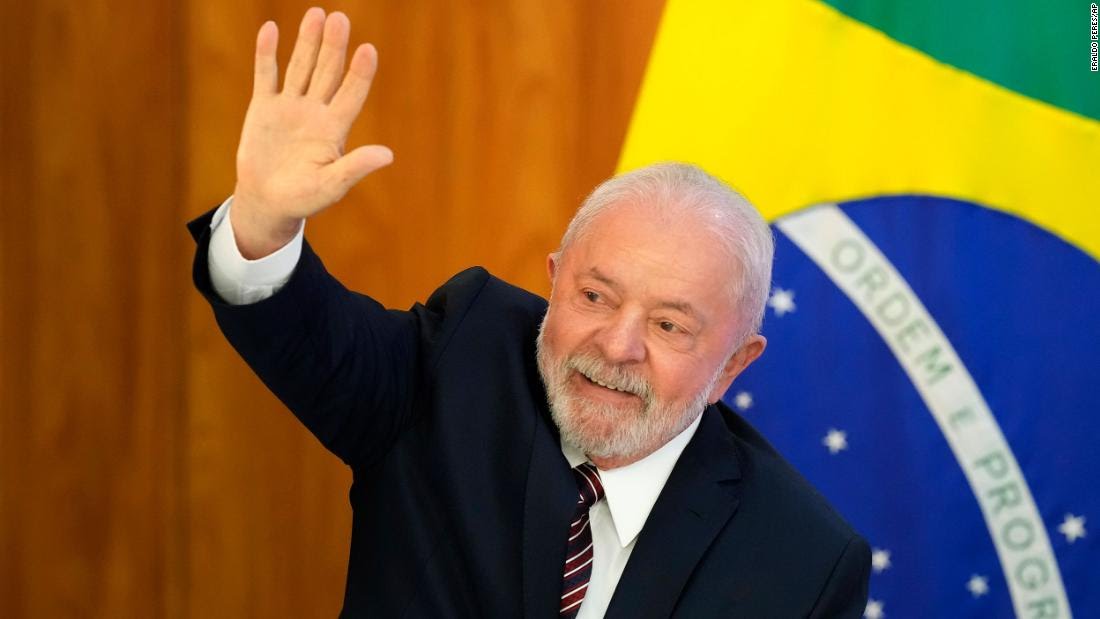Brazil’s President Luiz Inacio Lula da Silva is travelling to China this week on a state visit, and it is anticipated that his discussions with Chinese President Xi Jinping would mostly centre on trade and the conflict in Ukraine.
Originally scheduled to travel to Beijing last month, 77-year-old Lula was instead admitted to the hospital with pneumonia. The trip was reinstated, his office said on Monday, with Brazil’s goal being “to relaunch its relations with the country that has been its main trading partner since 2009.”
The Brazilian team, which Lula led into China on Wednesday, consists of businesspeople, state governors, congressmen, and ministers. They hope to sign over 20 bilateral agreements with China on topics like agriculture, cattle, technology, travel, and tourism.
According to official data, China imported Brazilian goods worth more than US$89.7 billion last year and exported approximately US$60.7 billion to Brazil, bringing the total value of their commerce to US$150.4 billion.
Trade between the two nations has, in the words of the Brazilian government, “increased 21 times since Lula’s first visit to China in 2004.” Lula has already paid two formal visits to Brazil, where he previously served two years as president.
The joint Brazilian-Chinese development of the CBERS-6 satellite, a model that “has improved technology that allows for efficient monitoring of biomes.
Such as the Amazon Rainforest even on cloudy days,” is one of the dozens of agreements that are anticipated to be finalised during the visit, according to the government.
Both Xi and Lula have already positioned their nations as potential mediators for the situation, thus it is believed that they will also talk about the issue in Ukraine.
Like many leaders in middle income and developing nations, Lula has embraced a policy of non-intervention over the crisis in Ukraine.
Rebuffing efforts led by US President Joe Biden to unite the global community in opposition to Russia’s invasion.
This is my work. This is the work that I have to do. I began with Olaf Scholz, the chancellor of Germany. I talked with (French President Emmanuel) Macron on the phone. I’ll talk with President Biden now.
Mauro Vieira, the foreign minister of Brazil, alluded to hopes for a possible international consensus following Lula’s visit.
A group of mediator nations will apparently have been established by the time Lula goes home, according to Vieira.
His travel to China coincides with broader initiatives to improve Brazil’s relations with other nations, including a recent trip to Argentina for a summit of CELAC.
A group of countries in Latin America and the Caribbean that also featured a delegation from the United States.
According to Wang Wenbin, a spokesperson for China’s foreign ministry, the trip will “usher in a new era and a new future for China-Brazil relations.”
Lula’s next state visit is to the United Arab Emirates, which will follow his trip to China.















